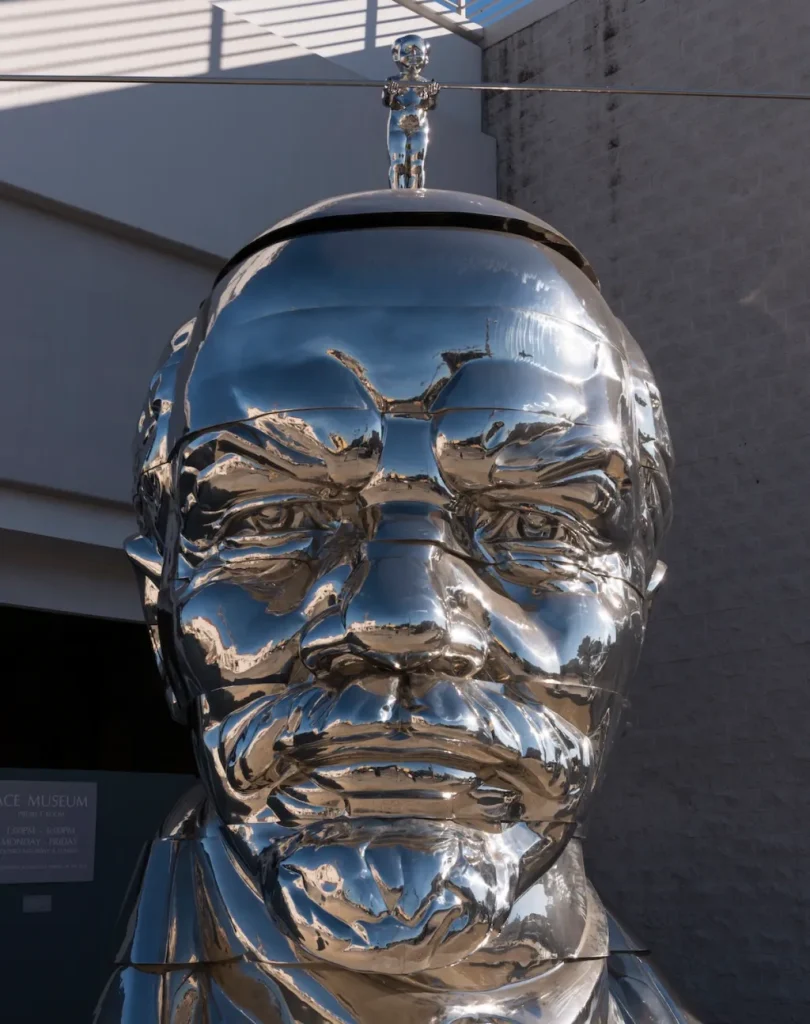Chinese artist Gao Zhen, who was arrested last year in China on “suspicion of slandering China’s heroes and martyrs,” remains in detention and his health is deteriorating, the Human Rights Watch said in a public release in early October.
In the release, the nonprofit called for the Chinese government to drop the “baseless charges” against Gao, adding that he is in “poor health” and fainted last month.
Gao was once part of an artist duo with his brother Gao Quiang. The two gained some fame and notoreity for creating politically charged sculptures, paintings, and performances that challenge Communist orthodoxies, often invoking Chinese Communist Party founder Mao Zedong, the Cultural Revolution of the 1960s, and the 1989 Tiananmen Square protests and massacre.
The Chinese government arrested Gao Zhen under a 2021 law that made it a criminal offense, punishable by up to three years in prison, for slandering “China’s martyrs and heroes.” The law updated a similar one, passed in 2018, that has been part of President Xi Jinping’s long-standing campaign to stifle dissent and enforce Communist Party orthodoxy.
As Human Rights Watch noted, the supposedly offending artworks—118 pieces taken from Gao’s studio in Sanhe, a city in northern China, in November 2024—were created between 2005 and 2009. That’s long before Xi entered office in 2013, let alone the cited laws in 2018 or 2021.
“The Chinese authorities’ prosecution of Gao Zhen both violates his basic rights and indicates a step back toward China’s painful past,” Elaine Pearson, Asia director at Human Rights Watch, said in a statement. “Critique about Mao’s brutal legacy, once tolerated, now seems to be off-limits as President Xi Jinping tightens his ideological control.”
A trial date has still not been announced for Gao, the release said, though he is expected to get one in the coming months. His family told the nonprofit that a doctor at the detention center said that Geo may have arteriosclerosis, which could be a “prescursor to a stroke.” Gao also suffers from chronic back problems, and is currently being held in a 430-square-foot cell with 14 other detainess. Gao has been denied an application for medical bail.
“Gao Zhen is facing years in prison for holding up a mirror to China’s past,” Pearson added in an additional statement. “The Chinese government should break away from its abusive past practices, drop the charges against Gao, and immediately release him.”
A source close to the case told the Art Newspaper that Gao’s case is particularly complicated because he is a permanent resident in the US, and his son is a US citizen. The family “remains hopeful that through the US government continued diplomatic efforts, Gao Zhen will soon be reunited with his family and able to return to the United States,” the source said.
In August, Gao sent a letter through his lawyer to Ai Weiwei, the famed dissident Chinese artist who was detained in 2011 for 81 days without a charge. The Chinese government release Ai, but confiscated his passport until 2015, at which point Ai went into exile. In the letter, Gao wrote that his “dire situation … feels like a repeat of the drama you lived through years ago.” Gao noted that, compared to Ai’s situation, there has been little international outcry, with foreign media coverage appearing as “a silent pantomime.”
“Right now, I’m sitting at the window of a 30-something-square-meter cell housing fifteen people, writing this letter to you,” Gao wrote. “The television blares, conversations of other detainees fill the air. Amid the noise, my thoughts drift through the time and space separating your past from my present. It feels surreal—like recounting a story long past. And yet everything in front of me is unmistakably real.”
